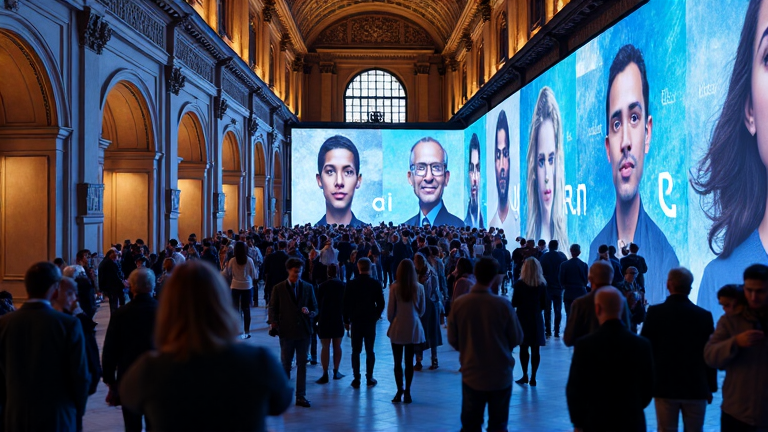
Europe Confronts Global AI Challenges: A Summit in France
Amid rising competition from AI giants in the United States and China, Europe is seeking to elevate its status in artificial intelligence by hosting a pivotal summit in France. Scheduled for February 10 and 11, the event will take place at Paris's iconic Grand Palais, drawing influential tech leaders and delegates from 80 nations.
In a build-up to the main event, French President Emmanuel Macron is set to visit research centers on February 4, which are leveraging AI advancements in science and health. He will also engage with scientists and Nobel Prize laureates during a gathering at the Elysee Palace. Additionally, a broader science and innovation conference is on the agenda at the Polytechnique engineering school, adding depth to the discussions.
A Call to Action
A senior official from Macron’s office emphasized the timeliness of the summit, describing it as a crucial moment for both France and Europe to harness AI's potential. With the US preparing a vast $500 billion AI investment and China's DeepSeek introducing a groundbreaking generative AI model, Europe's urgency to act has escalated.
Prominent figures like OpenAI's Sam Altman and Google's Sundar Pichai will attend, joined by French innovators such as Arthur Mensch of Mistral and Nobel laureate Demis Hassabis of DeepMind. However, details remain unclear regarding possible participation from Elon Musk and DeepSeek's Liang Wenfeng.
Prominent European Participation
European leaders, including European Commission President Ursula von der Leyen and German Chancellor Olaf Scholz, are confirmed attendees, reflecting the continent's unified approach to AI development.
Boosting AI Confidence and Adoption
Anne Bouverot, Macron’s AI envoy, indicates that the summit will approach AI with measured optimism, steering clear of alarmism. Paris aims to showcase its vibrant AI sector, with hopes of announcing substantial investments reminiscent of the "Choose France" initiative, which saw commitments of 15 billion euros in 2024.
AI's role in cultural arenas—spanning art and media—will be explored during a public event over the weekend. Clara Chappaz, France's digital minister, highlights these sessions' intent to demonstrate beneficial AI applications, thereby fostering public trust and encouraging widespread technology adoption. Nevertheless, public sentiment remains wary, as evidenced by an Ifop survey where a majority expressed concerns about AI.
Towards Inclusive and Sustainable AI
France aspires to propel an ethical and accessible AI vision, moving away from dominance by a handful of major players. According to Bouverot, encouraging more inclusive AI development is paramount to France's agenda.
The summit will aim to kickstart a public-interest AI foundation, targeting a 2.5 billion euro fund over five years. This initiative proposes a collaborative framework involving governments, businesses, and philanthropic bodies worldwide.
Macron’s administration seeks to map global AI governance efforts and secure pledges for environmentally friendly AI applications. While binding commitments are not yet planned, the establishment of a framework for responsible, trustworthy AI remains a primary goal, according to Laure de Roucy-Rochegonde, who leads the French Institute for International Relations’ geopolitical technology center.
Note: This publication was rewritten using AI. The content was based on the original source linked above.